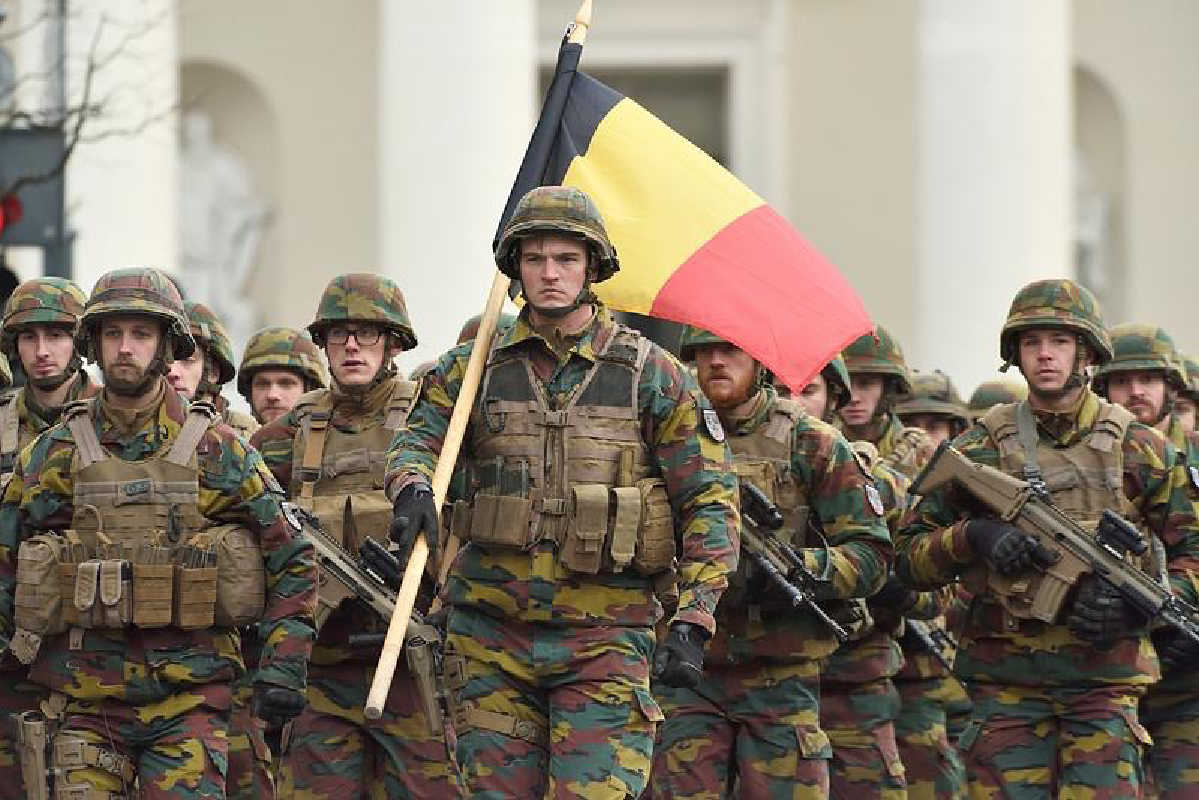
Belgium
Belgium's military history is marked by its strategic location in Europe, leading to frequent invasions and battles involving various European powers. Here’s an overview of key periods and events:
Medieval Period and the Burgundian Netherlands
- Battle of the Golden Spurs (1302): A significant battle where Flemish militias defeated the French knights, symbolizing Flemish resistance against French control.
- Burgundian Period (1384-1477): The region came under the control of the Duchy of Burgundy, leading to relative stability and economic prosperity.
Habsburg Rule and Spanish Netherlands (1500-1713)
- Eighty Years' War (1568-1648): Conflict between the Spanish Empire and the Dutch rebels. The southern provinces, now Belgium, remained under Spanish control.
- Battle of Rocroi (1643): A decisive French victory against the Spanish, marking the decline of Spanish power in Europe.
Austrian Netherlands and French Revolutionary Wars (1713-1794)
- War of the Austrian Succession (1740-1748): The region was a battleground with key battles like the Battle of Fontenoy (1745), where French forces defeated the British-Austrian-Dutch army.
- French Revolutionary Wars: Belgium was annexed by France after the Battle of Fleurus (1794).
Napoleonic Era and Dutch Rule (1795-1830)
- Battle of Waterloo (1815): One of the most famous battles in European history, where Napoleon was finally defeated by the British and Prussian forces near Brussels.
- United Kingdom of the Netherlands (1815-1830): Belgium was part of this kingdom until gaining independence.
Belgian Independence and Early Modern Period (1830-1914)
- Belgian Revolution (1830): A successful revolution against Dutch rule, leading to the establishment of Belgium as an independent kingdom.
- Battle of Antwerp (1832): A significant conflict during the Belgian Revolution where Belgian forces defended the city against Dutch attempts to reclaim it.
World War I (1914-1918)
- Invasion of Belgium (1914): Germany invaded neutral Belgium, leading to a brutal occupation and significant battles like the Siege of Liège and the Battle of Ypres.
- Battle of Ypres: Notable for the use of chemical weapons and heavy casualties.
World War II (1939-1945)
- Battle of Belgium (1940): Part of the German blitzkrieg, leading to the rapid occupation of Belgium.
- Resistance and Liberation (1944-1945): Belgian resistance efforts were significant, and the country was liberated by Allied forces, notably during the Battle of the Bulge.
Post-World War II and Modern Era
- NATO Membership (1949): Belgium became a founding member of NATO, contributing to various international missions.
- Korean War (1950-1953): Belgian forces participated as part of the United Nations command.
- Peacekeeping Missions: Belgium has been involved in numerous international peacekeeping missions, including in the Balkans, Africa, and the Middle East.
Belgium's military history reflects its strategic importance and the frequent conflicts that have shaped its development. Despite its small size, Belgium has played a significant role in European military history, from medieval battles to modern international peacekeeping efforts.
This collection is empty
View all products
Sort by

